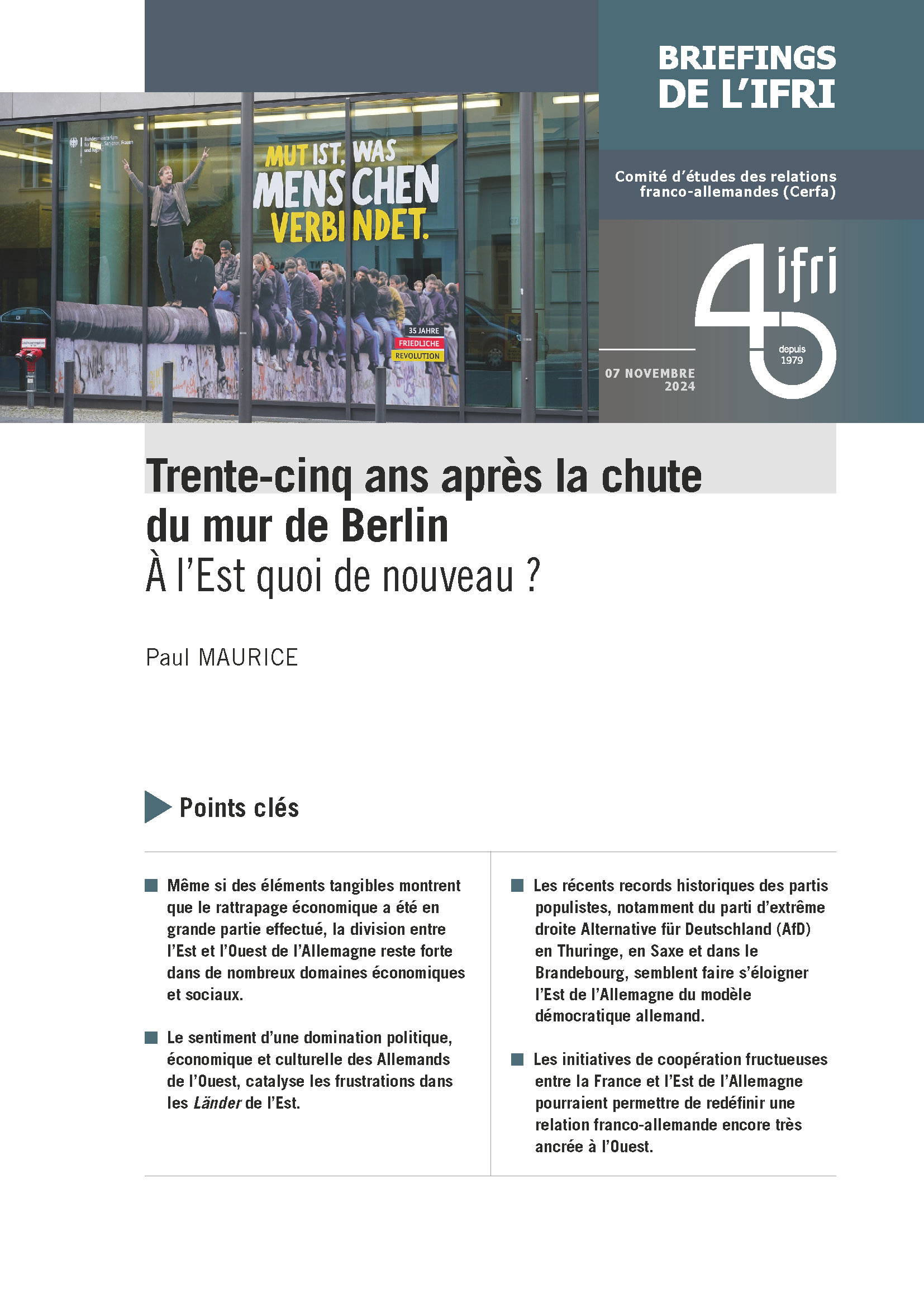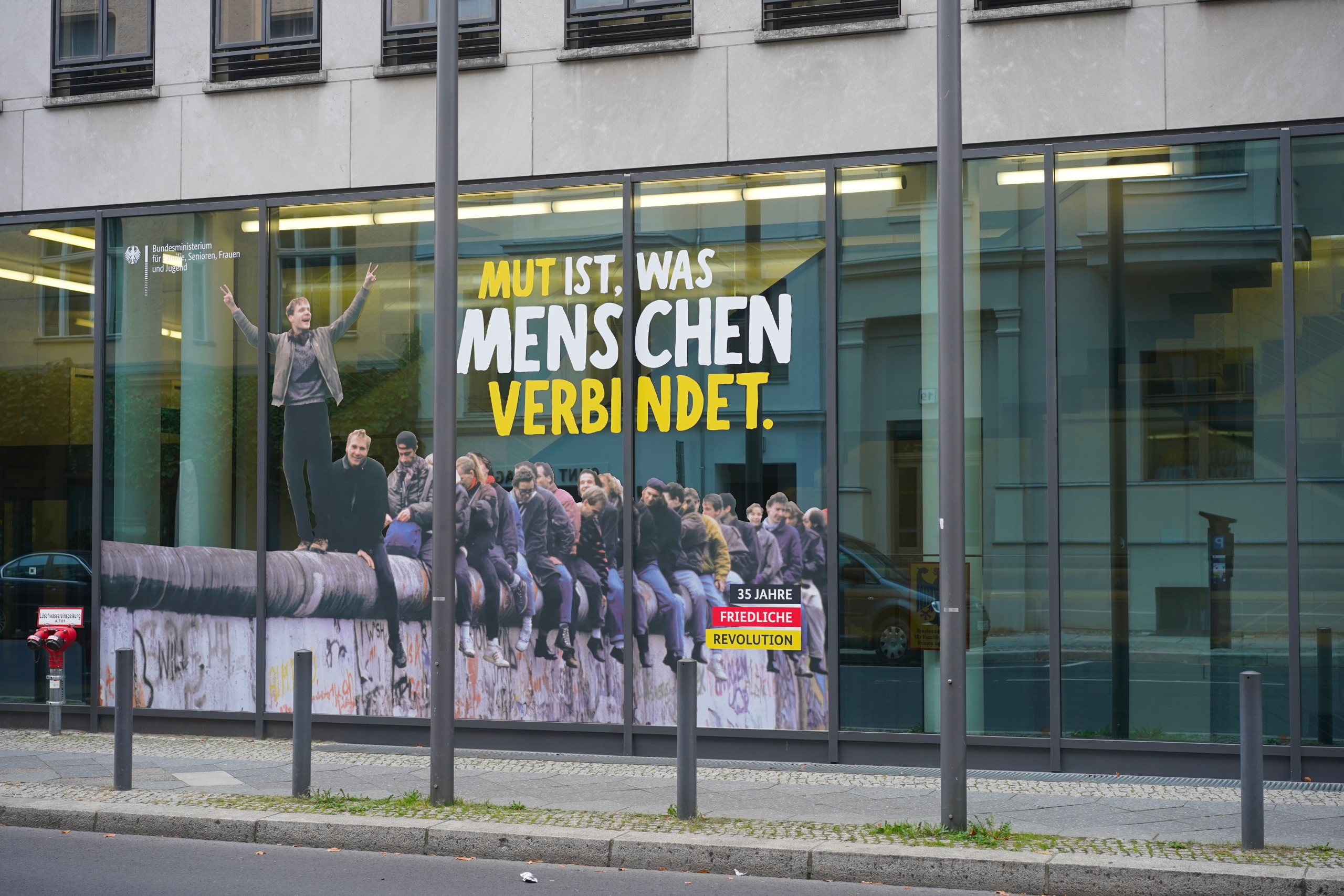Thirty-five years after the fall of the Berlin Wall: what’s new in the East?

As we celebrate the 35th anniversary of the fall of the Berlin Wall on November 9, 2024, let’s start from the premise that the Berlin Wall did not “fall” on the night of November 9, 1989.

The process that led to its “opening” was based on the mobilization of GDR citizens aspiring to democracy, and intensified in the autumn of 1989, culminating on November 9 and paving the way for German unification on October 3, 1990. Thirty-five years after the fall of the Berlin Wall, is it still time to celebrate in East Germany?
- Even if there are tangible signs that economic catch-up has largely been achieved, the division between East and West Germany remains strong in many economic and social areas.
- The sense of political, economic and cultural domination by West Germans is catalyzing frustration in the eastern Länder.
- Recent historic highs for populist parties, notably the far-right Alternative für Deutschland (AfD) in Thuringia, Saxony and Brandenburg, appear to be driving eastern Germany further away from the German democratic model.
- Successful cooperation initiatives between France and East Germany could help redefine a Franco-German relationship that is still very much rooted in the West.
Paul Maurice is Secretary General of The Study Committee on Franco-German Relations (Cerfa) at Ifri, where he focuses on German domestic policy, Franco-German relations within the European Union, and German foreign and security policy.
This publication is available in French (pdf): "Trente-cinq ans après la chute du mur de Berlin : à l’Est quoi de nouveau ?"

Available in:
Themes and regions
Share
Download the full analysis
This page contains only a summary of our work. If you would like to have access to all the information from our research on the subject, you can download the full version in PDF format.
Thirty-five years after the fall of the Berlin Wall: what’s new in the East?
Related centers and programs
Discover our other research centers and programsFind out more
Discover all our analysesThe Franco-German Brigade and the Revival of European Defense
One thing has been clear since Donald Trump's return to the White House: the very existence of the European unification project is threatened. Unless it develops a sovereign defense policy to counter the war in Ukraine and the weakening of American security guarantees, the European Union will continue to see its internal cohesion and external attractiveness wane.
Friedrich Merz and the Zeitenwende 2.0. A “New Era” for Transatlantic Relations?
On February 23, 2025, almost 60 million voters were called upon to elect a new Bundestag. These elections will also give rise to a new government in Europe's largest economy.
After the Elections: Germany in Search of Shaken Stability?
With a voter turnout of 82.5%, Germany recorded its highest participation since 1987—an increase of 6.1 percentage points compared to 2021. As in the previous election, the high turnout particularly benefited the Alternative for Germany (AfD), which was able to mobilize many former non-voters. Many voters sought to punish the outgoing government with their ballots, as its approval rating had dropped to just 14% before the coalition broke apart in November 2024. Germany is now very likely heading toward a grand coalition between the CDU/CSU and the SPD, with exploratory talks having begun on February 28.
The German Greens as an Alliance Party: The End of an Illusion?
At the Wiesbaden Congress in November 2024, Robert Habeck, currently Minister for the Economy and Climate, was nominated as the Green Party’s candidate for the Chancellorship in the early parliamentary elections on February 23, 2025. The party, founded 45 years ago, is now firmly established in the German political landscape. Wishing to turn the page on an unloved ‘‘traffic light’’ coalition, the party is banking on a personal campaign and an optimistic discourse based on the energy transition and social justice.











